Testosterone is the primary male sex hormone that's involved in many processes in the body. Hence, your testosterone levels have significant effects on your physical and mental health.
In this article, we'll talk more about how it works in the body, and where it comes from.
How Does Testosterone Affect the Body and Health? Why Do You Need Testosterone?
Testosterone plays many roles in the body. Because of that, you'll need to maintain a healthy body if you want healthy testosterone levels.
Below are the effects of testosterone on different parts of the body:
Your Muscle Mass
Testosterone results in an increase in neurotransmitters and levels of growth hormone, both of which make it easier for you to build muscle mass(1).
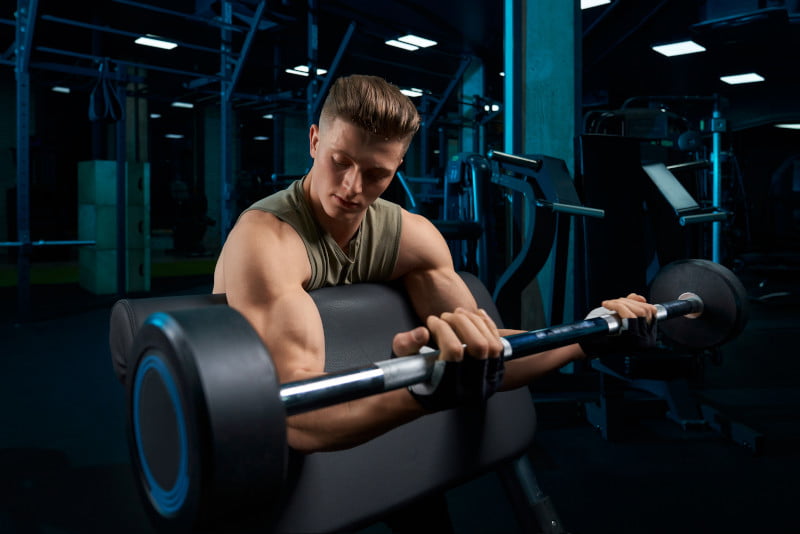

However, remember that testosterone alone won't help with muscle growth. regular exercising and resistance training is essential for lean muscle development.
Mood and Behavior
Low testosterone levels can cause(2) emotional and mental issues like depression and mood swings.
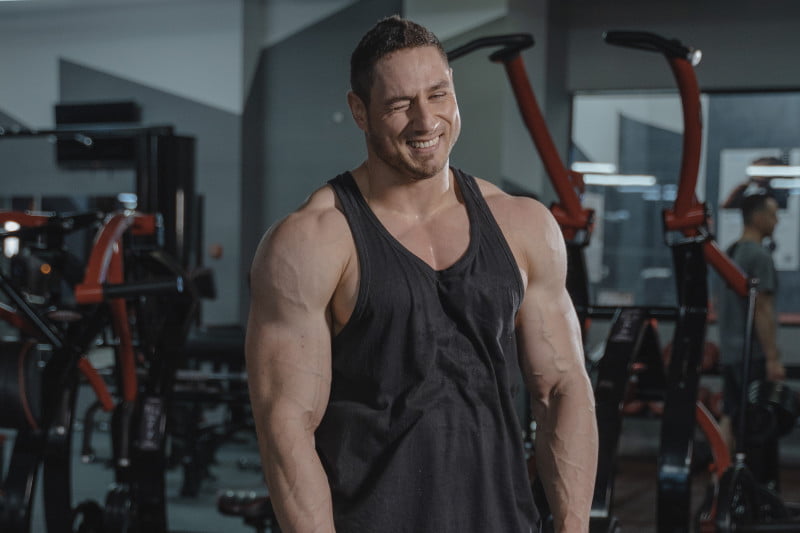

The condition can also make you less able to deal with stress — and a prolonged state of stress will continue lower your testosterone even more.
Bone density
Reduced bone mass is natural as you grow older. However, healthy testosterone levels help improve and maintain bone density — especially in the hip and spine.


A study(3) also showed that the hormone can also reduce fracture risk.
Libido (Sex Drive)
Testosterone levels naturally increase with sexual arousal(4) and help maintain overall sexual health, leading to higher sexual activity.
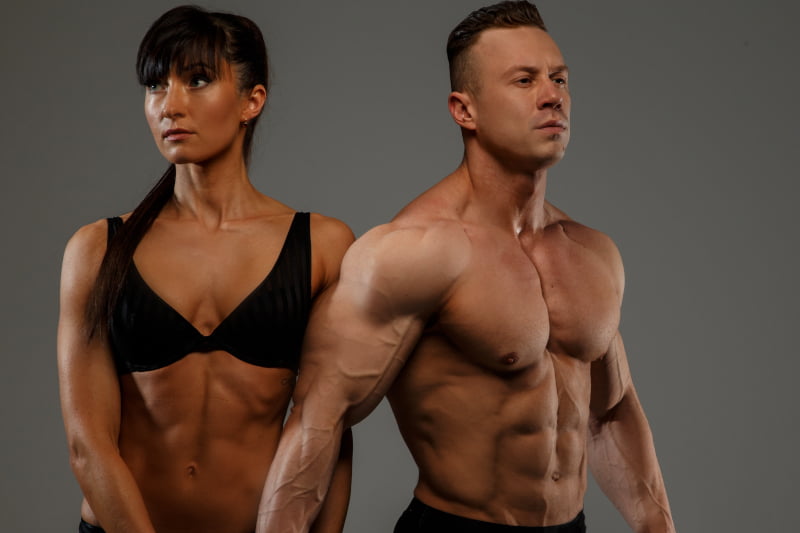

Those with erectile dysfunction may look to natural t boosters or prescription-based testosterone to improve their sexual function.
Hair Growth or Loss
Testosterone's effect on hair growth is mainly seen when males undergo puberty at around 12 years old. As teens age, body hair starts to grow more prominently, especially on the face and pubic area.
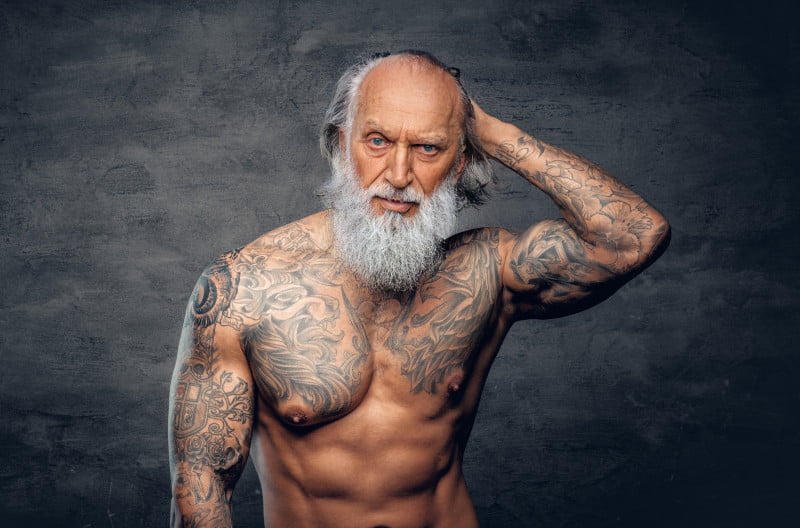

On the other hand, abnormally low t levels will be detrimental to hair growth and can cause baldness.
How You Burn Body Fat
Weight and testosterone are interconnected.
Obesity can cause low testosterone levels, but a study(5) shows that testosterone therapy can help with sustained weight loss.
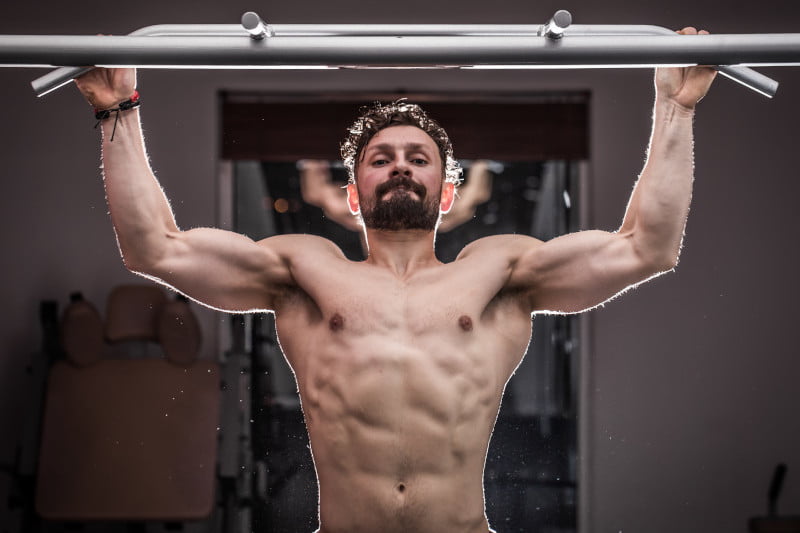

However, you can increase testosterone levels naturally by adopting a healthier lifestyle, regular exercise, and a balanced diet supplemented by testosterone-boosting food.
Red Blood Cells and Circulation
Testosterone stimulates the bone marrow to produce more red blood cells.
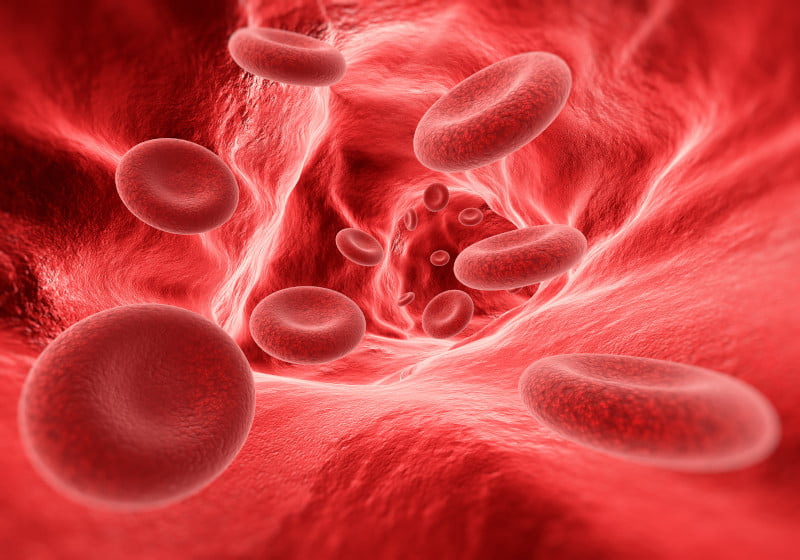

Related to that, a study(6) shows that testosterone can also protect you from cardiovascular disorders like heart attacks and strokes.
It can also help with blood flow(7) and higher levels of blood platelet cells(8).
Reproductive Organ Health and Development
During puberty, testosterone will cause various changes to the male body, both physical and emotional changes. Such changes include the deepening of the voice and growth spurts.
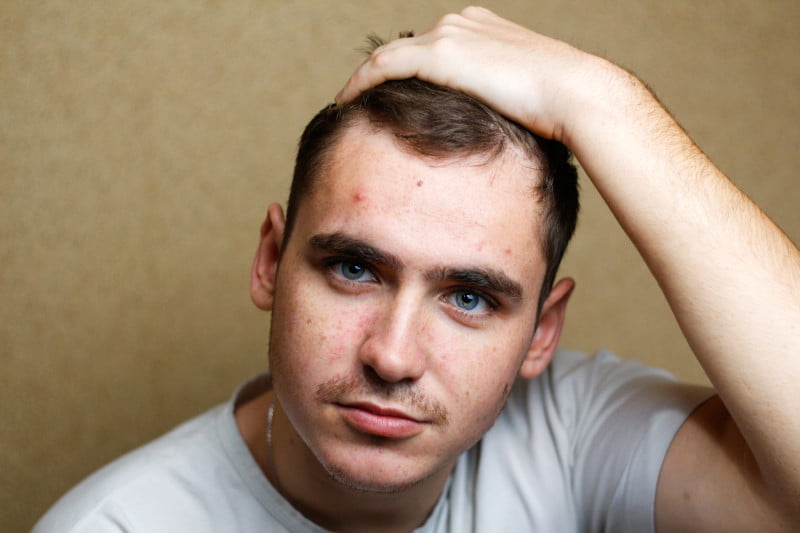

The reproductive organs start to mature too. However, ejaculation starts to become possible only starting mid-adolescence. Fertility is also attained much later in adolescence.
Sleep Patterns
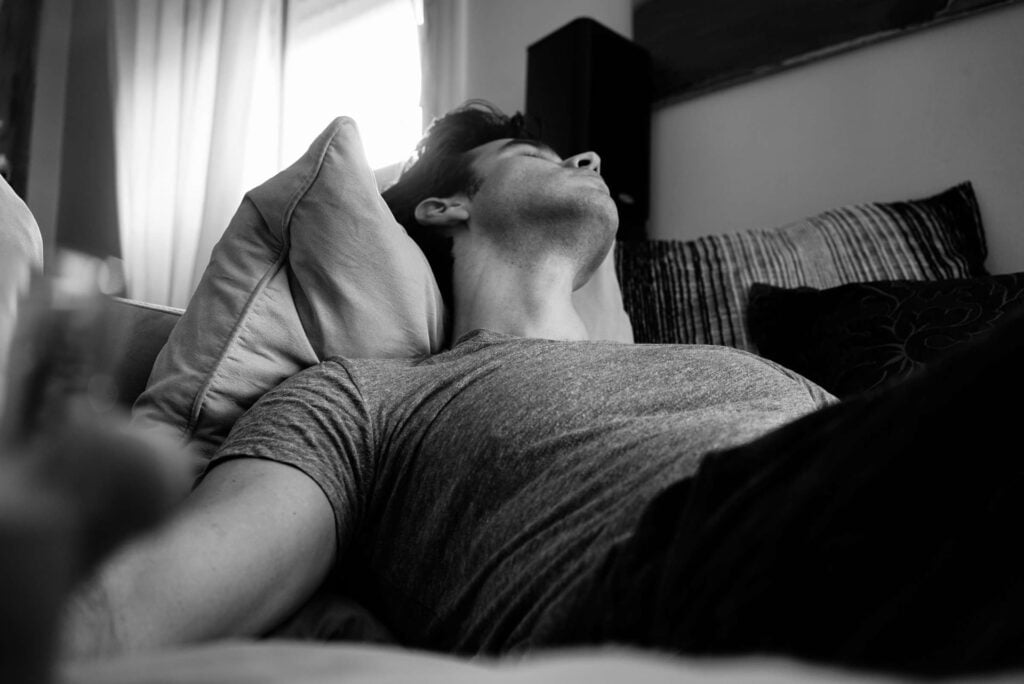

Testosterone helps normalize(9) your circadian rhythm, which is your body's internal clock.
It's natural to have low testosterone levels before sleeping. However, too low levels can cause sleep pattern changes and worsen testosterone deficiency.
Because of that, people with sleep problems (such as sleep apnea or insomnia) should seek help to prevent their testosterone from dropping.
Energy and Strength
Although occasional exhaustion is normal, abnormally low testosterone levels may cause(10) chronic fatigue. This can also contribute to lethargy and diminished motivation to exercise or move in general.
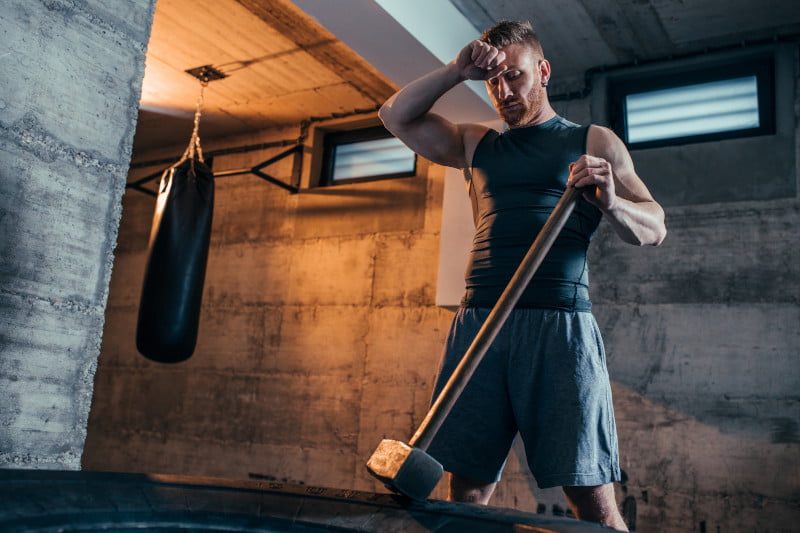

Where Does Testosterone Come From?
Testosterone, like most hormones, is regulated within the body with the help of a system called a feedback mechanism.
This means if you don't have enough testosterone in your bloodstream, your body will signal the hypothalamus to make more.
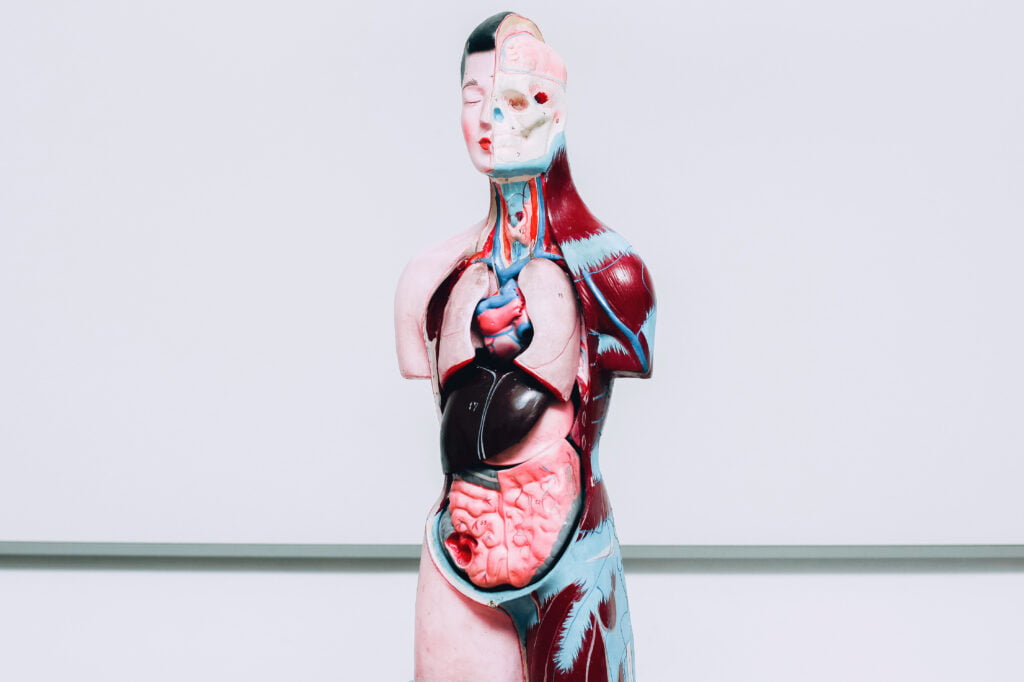

On the other hand, if you have good testosterone levels, your body will tell your hypothalamus to suppress the testosterone-making process in the meantime.
For your body to produce testosterone, the hypothalamus releases gonadotropin-releasing hormone (GnRH). This hormone stimulates the pituitary gland to release follicle-stimulating hormone and anterior pituitary luteinizing hormone (LH).
LH will then travel through the bloodstream and stimulate the Leydig cells in the testes; Consequently, the testicles produce and release testosterone.
After that, the sex hormone-binding globulin (SHBG) controls how much testosterone your body uses.
Testosterone production also occurs in the adrenal glands — although only in small amounts.
What Happens to Testosterone Levels with Age?
Testosterone levels will vary greatly during one’s lifespan, typically peaking at adolescence and falling with advancing age.
Too Much Testosterone
Boys are born with high concentrations of plasma testosterone, but this quickly falls within the first week. Despite that, babies will have 75 to 400 ng/dL of testosterone.
It peaks again when a male is 12 to 13 years old with 7 to 800 ng/dL.
This climbs to 300 to 1,200 ng/dL when they're 17 to 18 years old.
Too Little Testosterone
Testosterone fluctuates throughout a man's lifetime. However, they start dropping in a man's early 30s.
At 30 years old, they have an average of 233 to 1009 ng/dL — and these levels keep dropping by 1% every year.
However, most men don't notice diminished testosterone levels until they're already in their 40s.
How Do You know if Your Hormone Levels are Too High or Too Low?
Low testosterone doesn't always present symptoms. In fact, some people only know they have low testosterone after getting checked.
But if you've been experiencing one or several symptoms of low testosterone for quite some time, then you should see a doctor.
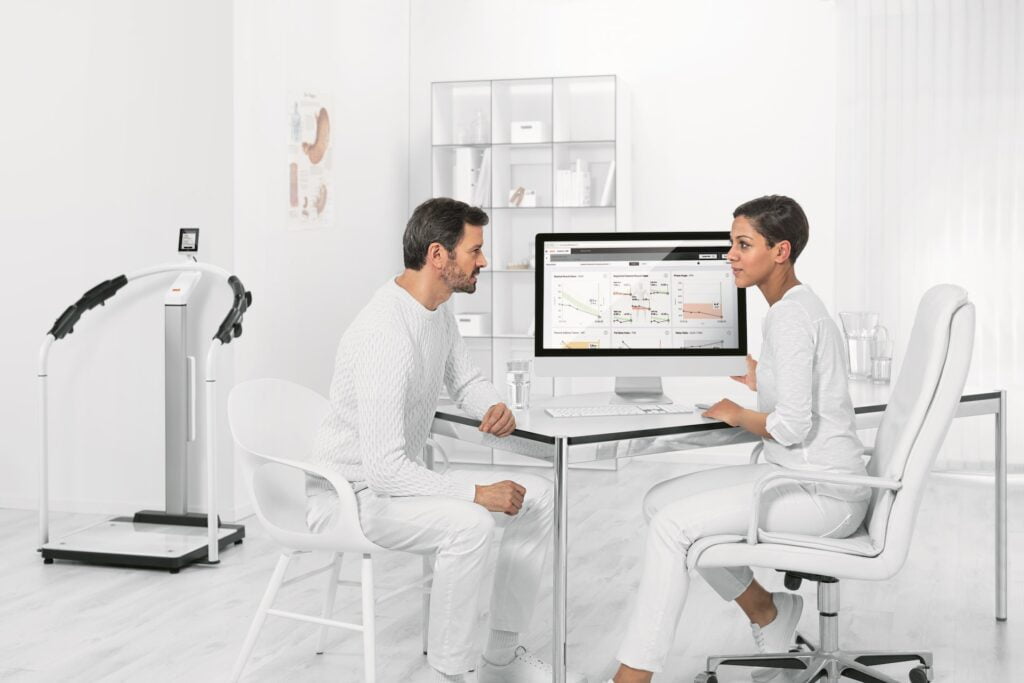

The doctor will have you undergo a physical examination and a blood test.
They'll review the symptoms of low testosterone you're experiencing and possibly request further tests to look for more signs. For instance, they may look at your blood pressure or ask for a bone test to analyze bone density.
As for the blood tests, it's best to do them in the morning (around 7 a.m. and 10 a.m.) since that is when your testosterone is highest.
After the test, the doctor can suggest ways to address abnormally high or low testosterone levels.
Treatment Options to Increase Testosterone Levels
If you have abnormally low testosterone, the doctor can suggest treatment to bring your levels up provided your low t is not primarily caused by advanced age.
The treatment is called "testosterone replacement therapy" (TRT) — a hormone therapy that's used to treat hypogonadism or gonad deficiency.
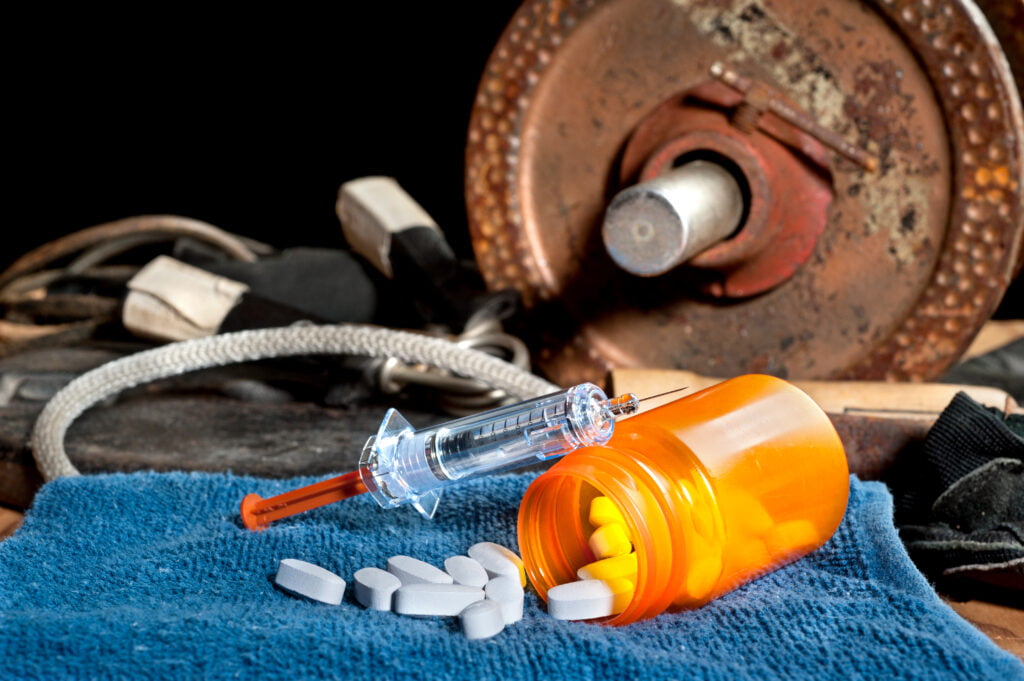

TRT gives your body the testosterone that your gonads aren't producing.
Some options for TRT include:
- Intramuscular injection - A series of injections will be administered deep into your gluteal muscle. These can be done by a doctor or self-administered.
- Topical creams - Typically you'll apply the cream on your shoulders, upper arms, or abdomen. This can accidentally be transferred to other people, causing health reactions, so you'll need to be careful. Cover the area with clothing until you've washed the area well later on.
- Transdermal patches - Patches should ideally be applied around the same time each night and changed every 24 hours. Put patches on different spots and wait for at least a week before reusing a spot.
- Oral capsules - The only approved testosterone capsule as of now is Jatenzo. However, you should only take it if recommended by your doctor. It is also only approved for men with low testosterone due to certain medical conditions.
TAKE NOTE: TRT options are exogenous anabolic steroids used to treat low testosterone. They are not to be used by athletes or other people with normal testosterone levels to help them build muscle.
Natural Ways to Boost Testosterone Levels
If you don't want to undergo TRT, or you're not suffering from a testosterone deficiency, there are natural ways to counteract low (but not abnormally low) testosterone.
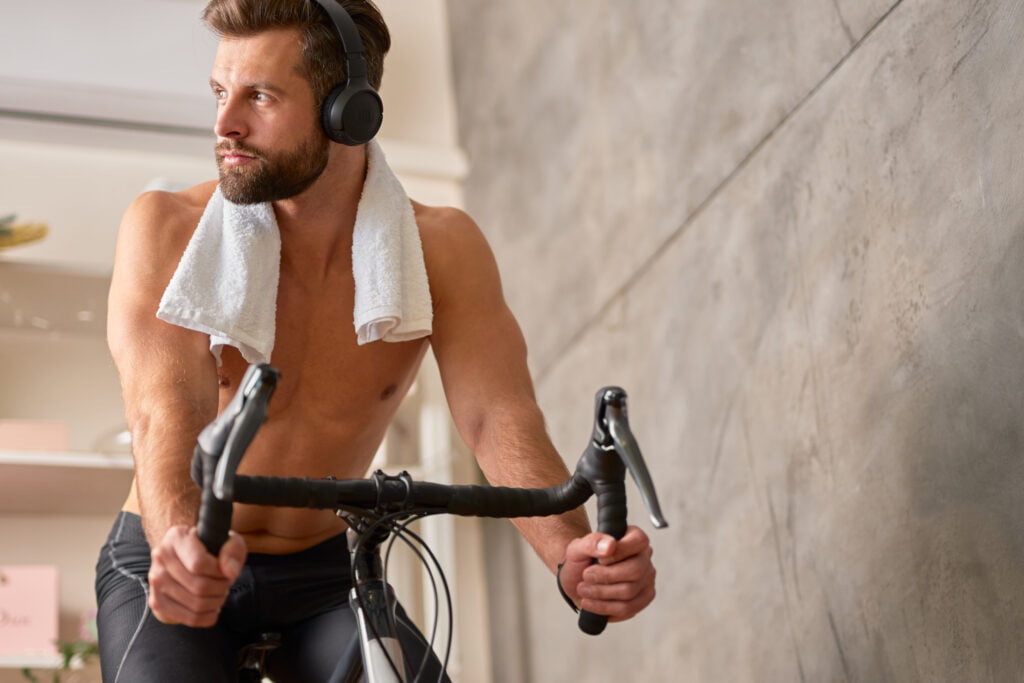

Below are a few testosterone-friendly self-care habits you can do:
- Exercise regularly - Most kinds of exercises will help boost testosterone and get rid of body fat. The best exercises to do are resistance training, HIIT, and weightlifting. However, if you’re an athlete, take note that “chronic exposure to prolonged endurance training"(11) can actually cause testosterone levels to fall.
- Adopt a balanced diet - Extremediets and overeating can hurt your testosterone levels. Eating the wrong food is equally harmful. Eat a balanced diet of protein, healthy fats, and whole carbs. Meanwhile, try to limit alcohol, soy-based products, and processed food.
- Manage stress - When there is elevated cortisol - the stress hormone - in the body, your t levels take a hit. As such, self-care and minimizing stressors will lower your cortisol and thus help increase the testosterone in your bloodstream.
- Get good-quality sleep - A study(12) shows that insufficient sleep will cause low testosterone. That's because testosterone naturally increases as you sleep — so the less you sleep, the less time your body can generate testosterone. In addition, lack of sleep also increases stress(13).
- Take natural boosters - Unlike TRT, over-the-counter testosterone boosters contain all-natural ingredients, similar to food supplements. These boosters will give your body the resources it needs to produce testosterone naturally on its own.
FAQ:
Below, we’ve answered the most common questions about testosterone and how it affects men:
What happens to your body when your testosterone is low?
Symptoms of abnormally low testosterone include erectile dysfunction, low sperm production, mood swings, early male pattern baldness, and low sexual desire, among others. Reduced testosterone will also cause side effects like slow metabolism and diminished motivation, leading to weight gain.
How low testosterone affects a man?
If a man has a low testosterone level, he may experience mental and emotional problems. These include mood swings, depression, and irritability. Low testosterone will also cause low self-esteem and motivation.
Does testosterone give you energy?
Yes, a healthy testosterone level can boost your energy levels. It can also help you overcome fatigue and improve other aspects of your life. For one, higher energy results in better motivation to work out. A high amount of circulating testosterone will also improve your erectile function, so you can expect better sex drive and performance.
What is a high testosterone level for a man?
For men 19 to 39 years old, anything over 916 ng/dl might already be too high. Having too much testosterone is also problematic since it can cause other side effects. These include blood thickening, high blood pressure, increased risk of stroke and heart attack, excessive body hair, and low sperm production.
When do testosterone levels rise or fall?
Testosterone levels naturally rise and fall throughout a man's lifetime. They're highest in male babies, early adolescents, and young adults. They also rise and fall throughout the day too. They're highest in the morning and as you sleep.
How is testosterone controlled?
You can control testosterone through natural and medical means. Naturally, you can adopt testosterone-friendly habits such as exercising, having a healthy diet, managing stress and sleeping well. Medically, a doctor can have you undergo TRT if you’re suffering from, hypogonadism.
Conclusion
Testosterone is the primary male sex hormone that plays a big role in the body.
Some effects of testosterone include:
- Improved sex drive
- Stronger bones
- Faster muscle-building
- Better mood
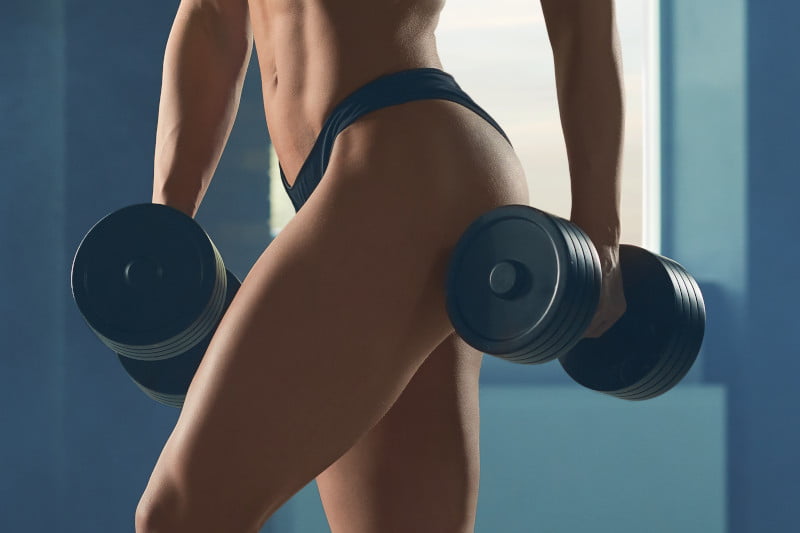

The body produces testosterone naturally, but the levels fluctuate throughout a man's lifetime. Health conditions like autoimmune diseases and aging can result in low testosterone levels.
Some symptoms of low testosterone are:
- Reduced muscle mass
- low sex drive
- low energy levels and motivation
- hair loss
- weight gain
To improve and maintain your testosterone levels, you can make lifestyle changes — such as exercising regularly, having a good diet, and performing self-care.
However, a doctor might also need to prescribe TRT if you have testosterone deficiency.
- Griggs, R C et al. “Effect of testosterone on muscle mass and muscle protein synthesis.” Journal of applied physiology (Bethesda, Md. : 1985) vol. 66,1 (1989): 498-503. doi:10.1152/jappl.1989.66.1.498↩
- Berglund, Linnea Hergot et al. “Testosterone levels and psychological health status in men from a general population: the Tromsø study.” The aging male : the official journal of the International Society for the Study of the Aging Male vol. 14,1 (2011): 37-41. doi:10.3109/13685538.2010.522276↩
- Shigehara, Kazuyoshi et al. “Testosterone and Bone Health in Men: A Narrative Review.” Journal of clinical medicine vol. 10,3 530. 2 Feb. 2021, doi:10.3390/jcm10030530↩
- van Anders, Sari M. “Testosterone and sexual desire in healthy women and men.” Archives of sexual behavior vol. 41,6 (2012): 1471-84. doi:10.1007/s10508-012-9946-2↩
- ↩
- Sharma, Rishi et al. “Normalization of testosterone level is associated with reduced incidence of myocardial infarction and mortality in men.” European heart journal vol. 36,40 (2015): 2706-15. doi:10.1093/eurheartj/ehv346↩
- Herring, Michael J et al. “Testosterone and the cardiovascular system: a comprehensive review of the basic science literature.” Journal of the American Heart Association vol. 2,4 e000271. 10 Jul. 2013, doi:10.1161/JAHA.113.000271↩
- Gagliano-Jucá, Thiago et al. “Differential effects of testosterone on circulating neutrophils, monocytes, and platelets in men: Findings from two trials.” Andrology vol. 8,5 (2020): 1324-1331. doi:10.1111/andr.12834↩
- Wittert, Gary. “The relationship between sleep disorders and testosterone in men.” Asian journal of andrology vol. 16,2 (2014): 262-5. doi:10.4103/1008-682X.122586↩
- de Almeida Ferreira, Maurício, and José Alexandre Mendonça. “Long-term testosterone replacement therapy reduces fatigue in men with hypogonadism.” Drugs in context vol. 11 2021-8-12. 2 Feb. 2022, doi:10.7573/dic.2021-8-12↩
- Hackney, A C. “Endurance training and testosterone levels.” Sports medicine (Auckland, N.Z.) vol. 8,2 (1989): 117-27. doi:10.2165/00007256-198908020-00004↩
- Patel, Premal et al. “Impaired sleep is associated with low testosterone in US adult males: results from the National Health and Nutrition Examination Survey.” World journal of urology vol. 37,7 (2019): 1449-1453. doi:10.1007/s00345-018-2485-2↩
- Nollet, Mathieu et al. “Sleep deprivation and stress: a reciprocal relationship.” Interface focus vol. 10,3 (2020): 20190092. doi:10.1098/rsfs.2019.0092↩
